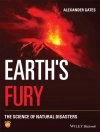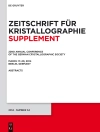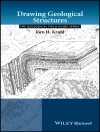The Earth Transformed answers the need for a concise,
non-technical introduction to the ways in which the natural
environment has been and is being affected by human activities. It
is simply and engagingly written, and illustrated with maps,
diagrams, figures and photographs.
Among the subjects described and considered by the authors are
desertification, deforestation, wetland management, biodiversity,
climatic change, air pollution, the impact of cities on climate and
hydrology, erosion, salinization, waste disposal, sea level rise,
marine pollution, coral reef degradation and aquaculture.
The book is organized around 45 case studies taken from all
parts of the globe and chosen for their intrinsic interest and
representative nature. Further features of the book include guides
to further reading, suggestions for debate and study, and a
glossary of terms.
The book is aimed to meet the needs of students beginning
courses on environmental science and geography.
Зміст
Preface.
Acknowledgements.
Part I: Introduction to the Developing Environmental
Impact:.
1. Early Days.
2. Developing Populations.
3. Agricultural Revolutions.
4. Urban and Industrial Revolutions.
5. The Modern Scene.
6. Understanding Environmental Transformations.
Key Terms and Concepts.
Points for Review.
Part II: The Biosphere:.
7. Introduction.
8. Fire.
9. Desertification.
10. Deforestation.
11. Tropical Secondary Forest Formation.
12. Grasslands and Heathlands: The Human Role.
13. Temperate Forests Under Stress.
14. Urban Ecology.
15. Wetlands: ‘The Kidneys of the Landscape’.
16. Biodiversity and Extinctions.
Key Terms and Concepts.
Points for Review.
Part III: The Atmosphere:.
17. Introduction.
18. Anthropogenic Climate Change: The Role of Aerosols. The Gulf
War Oil Fires.
19. Anthropogenic Climate Change: The Role of Land Cover
Changes.
20. The Enhanced Greenhouse Effect and Global Warming.
21. Urban Climates.
22. Urban Air Pollution.
23. Ozone Depletion and Ozone Pollution.
24. Acid Deposition.
25. Conclusion.
Key Terms and Concepts.
Points for Review.
Part IV: The Waters:.
26. Introduction.
27. River Regulation.
28. Forests and River Flow.
29. The Hydrological Response to Urbanization.
30. Land Drainage.
31. Water Pollution.
32. Eutrophication.
33. Thermal Pollution.
34. Inter-basin Water Transfers and the Death of the Aral
Sea.
35. Groundwater Depletion and Groundwater Rise.
36. Conclusion.
Key Terms and Concepts.
Points for Review.
Part V: The Land Surface: .
37. Introduction.
38. Soil Erosion by Water.
39. Wind Erosion and Dune Reactivation.
40. River Channel Changes.
41. Salinization.
42. Accelerated Landslides.
43. Ground Subsidence.
44. Waste Disposal.
45. Stone Decay in Urban Buildings.
46. Conclusion.
Key Terms and Concepts.
Points for Review.
Part VI: Oceans, Seas and Coasts: .
47. Introduction.
48. Sea-level Rise.
49. Coastal Erosion.
50. Coastal Flooding.
51. Coastal and Marine Pollution.
52. Coastal Dune Management.
53. Coral Reef Degradation.
54. Aquaculture and Coastal Wetlands.
55. Conclusion.
Key Terms and Concepts.
Points for Review.
Part VII: Conclusion:.
56. Introduction.
57. The Complexity of the Human Impact.
58. Towards a Sustainable Future.
Key Terms and Concepts.
Points for Review.
Glossary.
References.
Index.
Про автора
Andrew Goudie is Professor of Geography at the University of
Oxford, where he is also Pro-Vice-Chancellor. His previous books
include The Human Impact on the Natural Environment, The
Human Impact Reader, The Nature of the Environment,
and The Changing Earth.
Heather Viles is a University Lecturer in Geography and a
fellow of Worcester College, University of Oxford.












